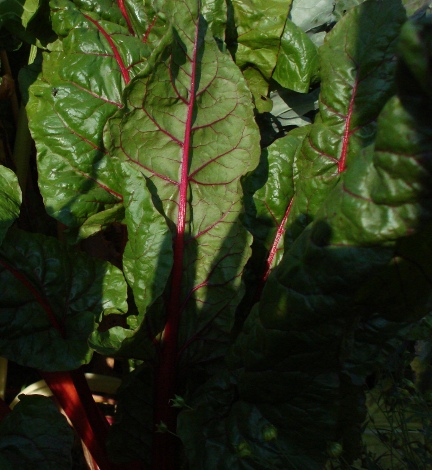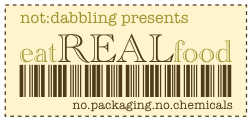
Skye-herd boss and lead animal practitioner at Healing Hooves in Alberta.
Six years ago (2003) I came to Bella Coola, an isolated settlement of about 1800 (half of the population is First Nations) on the west coast of British Columbia (500k from the nearest stop light!), to complete my Anthropology fieldwork for my MSocSc degree. I planned to stay only for 3 months before returning to New Zealand, where my husband and new home were. However, I fell immediately in love with this remote village, and was soon offered a 4-month contract with the General Hospital, which rapidly evolved into a permanent position. My husband joined me later that year, and soon found employment with the First Nations high school; we bought a property and began making our home in the valley.
Unfortunately, in 2006 I lost my job, due to an economically driven restructuring of the United Church Health Services. In 2007, I moved without my husband to work at the Saskatchewan Population Health and Evaluation Research Unit at the University of Regina. After nine months of living away from my home, my husband and everything I loved—including this community—I quit my job and returned to Bella Coola, with a view to making myself useful to the community once again, while being supported by my husband’s wage. About two weeks after returning to my home, my husband was let go from his employment (a sudden decision made by the newly elected First Nations Government, which disrupted the school and dismantled the entire education authority). We were lucky that he managed to get temporary employment with the School District last year, which has held us over until now. However, after June 26th of 2009 we will both be unemployed, as the person he replaced last year has since returned to work.
Because I love this community, I have been researching the needs and gaps in services with a view to once again making myself useful, employable and able to contribute to the community through paid employment in a meaningful way. While working for the United Church Health Services, I got the opportunity to see first hand the gaps in Social Services in our community. It is a remote First Nations community that struggles with a cycle and history of alcoholism and sexual abuse. One of the key gaps in service in our community, identified by the Social Health and Economic Development Society (an organization founded by myself and two colleagues to research and address gaps in social services in our community), is professional Drug and Alcohol Counseling service. Another critical need identified is qualified professionals with a specialization in autism. Bella Coola has a high rate per capita of autism, yet these people, in particular, have very limited support largely due to the small population and remote location; they often fall through the cracks entirely because of the limited, but strict, parameters issued by the Ministry.

An intimate moment shared between two 'gents'.
Realizing that I could fill some of these social service gaps, I have applied to take a Masters Degree in Counseling Psychology (scheduled to begin September, 2009). Instead of being a regular ‘talk therapist’, I plan to work with my farm animals as co-facilitators of the therapeutic process. I have been researching and learning about the exciting and burgeoning field of Animal Assisted Therapy and Counseling for several years, and have just completed my second level of Equine Facilitated Mental Health in Cremona, Alberta. In September, I will take the third (and final) level of the courses at Healing Hooves. These courses count as continuing education units for the Canadian Counseling Association, and together with the Counseling Psychology degree (and a host of other prerequisites) will lead to certification by Equine Facilitated Mental Health (with the Canadian Therapeutic Riding Association) and by Equine Facilitated Wellness Canada.
My long-term vision is to provide effective counseling services, specializing in Animal Assisted Therapy, to foster recovery, healing and growth through a program delivered in partnership with animals where appropriate, as well as using nature as a therapeutic tool. In order to support my Animal Assisted Therapy career goals, I have developed a small hobby farm and have already taken in several animals with a history of abuse. I give them a safe environment to heal themselves and learn again to trust humans. From the experience I have had to date, along with the research into this burgeoning field, I know these animals’ stories will help me develop a rapport with the clients I plan to work with. Often, the trust between animal and therapist fosters the development of trust between client and therapist as well. Animals can also foster relationship with people who struggle in ‘normal’ social situations. Attachment is a basic need and drive of all human beings (and animals!). Everyone needs to feel a certain security in order that development proceeds as nature intended. This development is not guaranteed in humans, and animals can play a crucial role in rebuilding these relationships. Autistic people, in particular, respond to animals positively in a therapeutic environment.
The Healing Hooves workshops will benefit anyone looking to explore incorporating animals into their therapeutic work. The workshop topics are covered through a mix of discussions, presentations, demonstrations and hands-on experiential exercises. They include opportunities to apply the theories learned to different client populations and scenarios through real life case studies, practice work with the horses, personal growth opportunities and interactions with Healing Hooves volunteers and former clients.
Other links and resources in the Animal Assisted Therapy field:
Dreamcatcher Association (Nature Assisted Therapy)
Healing Hooves (Equine Facilitated Wellness)
CANTRA Equine Facilitated Wellness (Certification body)




 the family medicine chest is an ongoing series on the fourth Thursday of each month.
the family medicine chest is an ongoing series on the fourth Thursday of each month.


















